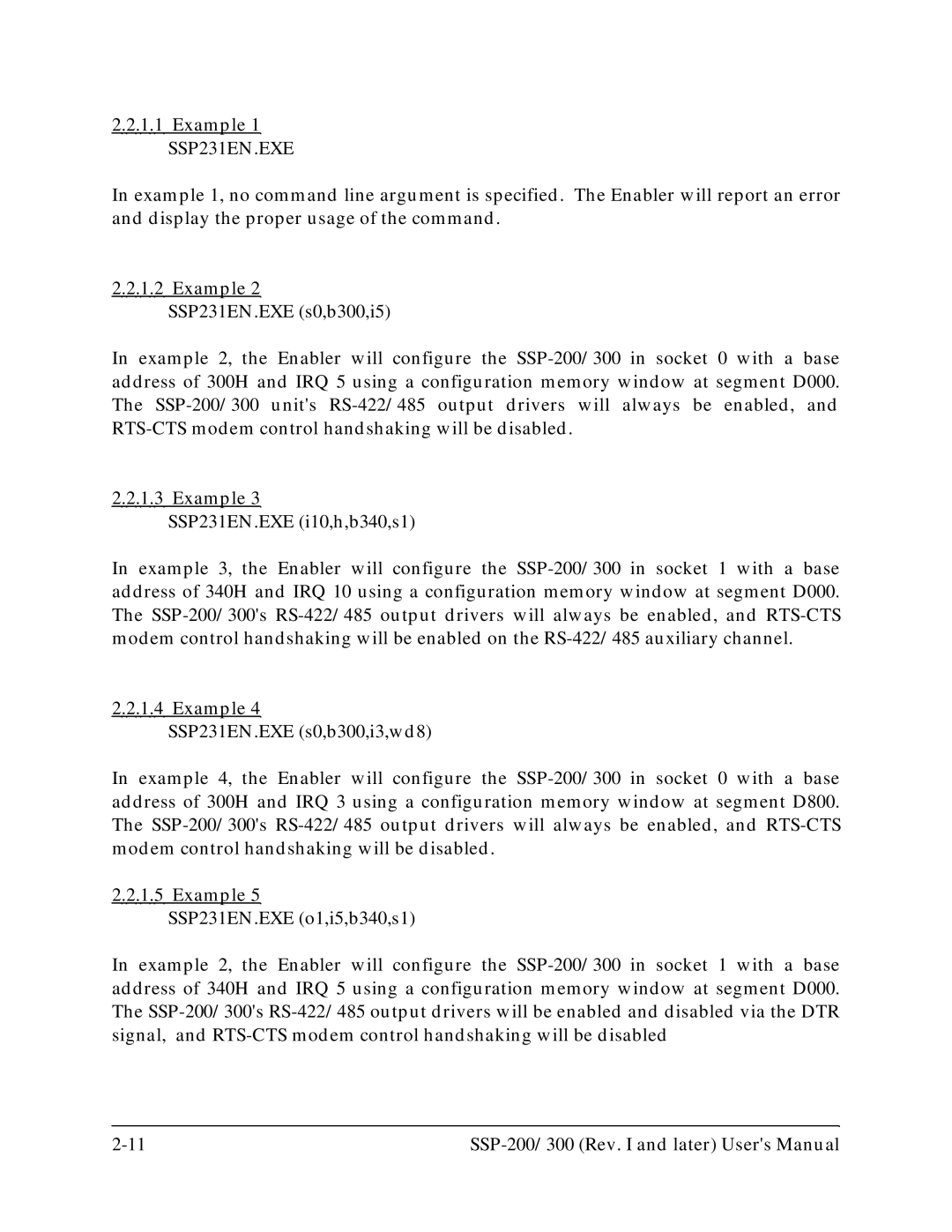2.2.1.1Example 1 SSP231EN.EXE
In example 1, no command line argument is specified. The Enabler will report an error and display the proper usage of the command.
2.2.1.2Example 2 SSP231EN.EXE (s0,b300,i5)
In example 2, the Enabler will configure the SSP-200/300 in socket 0 with a base address of 300H and IRQ 5 using a configuration memory window at segment D000. The SSP-200/300 unit's RS-422/485 output drivers will always be enabled, and RTS-CTS modem control handshaking will be disabled.
2.2.1.3 Example 3
SSP231EN.EXE (i10,h,b340,s1)
In example 3, the Enabler will configure the SSP-200/300 in socket 1 with a base address of 340H and IRQ 10 using a configuration memory window at segment D000. The SSP-200/300's RS-422/485 output drivers will always be enabled, and RTS-CTS modem control handshaking will be enabled on the RS-422/485 auxiliary channel.
2.2.1.4 Example 4
SSP231EN.EXE (s0,b300,i3,wd8)
In example 4, the Enabler will configure the SSP-200/300 in socket 0 with a base address of 300H and IRQ 3 using a configuration memory window at segment D800. The SSP-200/300's RS-422/485 output drivers will always be enabled, and RTS-CTS modem control handshaking will be disabled.
2.2.1.5 Example 5
SSP231EN.EXE (o1,i5,b340,s1)
In example 2, the Enabler will configure the SSP-200/300 in socket 1 with a base address of 340H and IRQ 5 using a configuration memory window at segment D000. The SSP-200/300's RS-422/485 output drivers will be enabled and disabled via the DTR signal, and RTS-CTS modem control handshaking will be disabled

